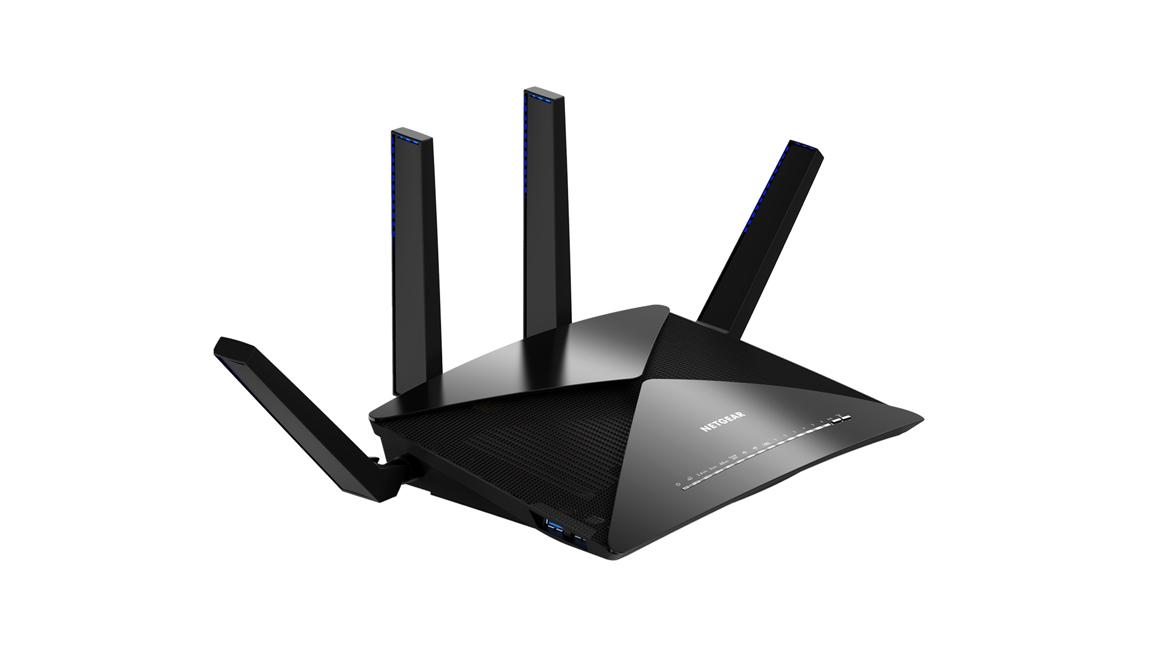
No One Needs A $500 Router, And Other Facts
Welcome to What We Learned This Week, a digest of the most curiously important facts from the past few days. This week: bad burgers, a $500 router and science can't figure out The Dress.
A $500 Router Is Basically A Home Server
Just what on Earth would you buy a $500 router for? Well it'll net you faster connection speeds, if your device supports the 802.11ad functionality (it probably doesn't). It'll reach all the nooks and crannies of your place (though do you really need strong Wi-Fi signal in every inch of your abode?) It'll let you run your own VPN server (though just paying for one yourself is probably good enough). It'll also give you remote access to all your media (though services like Netflix and Spotify kinda make this moot).
Yeah, the $500 router sounds great if you still live in 2008. But with so many companies offering cloud-based services, do you really need something this robust? It also looks like what you think a $500 router looks like: horrible.
[Gizmodo]
Most 'Good' Burgers Are Actually Pretty Mediocre
Think about the last great burger you had. What can you say about it? It was probably juicy. The bun was probably a perfectly-toasted potato roll. The lettuce crisp, the tomato sweet and the condiments offered notes of vinegar and spice.
But could you say any more about the beef? Probably not, argues Ben Turley, a butcher, in GQ. The great tragedy of the American burger, Turley gripes, is that so much focus has been placed on the things that are piled on top of the burger, that we largely forget about the main ingredient: The beef. This leaves us with a lot of fancy toppings but a pretty same-y burger no matter where you go.
According to Turley, this problem is two-fold. First is the current state of beef production here in the US. Simply put, the cows that are slaughtered for hamburger meat aren't exactly treated and fed the best. Second, which successful restaurant is going to pay for prime cuts of beef to turn into hamburger and then turn around and sell for $18-$20? Not many!
The solution, Turley says, is to just make the dang burger yourself. Get friendly with the butcher. Get some nice grass-fed beef, have the butcher grind it up for you, and cook it on a hot-as-hell cast iron pan. Put whatever you like on a burger on it. There you go. Now that's a good burger.
[GQ]
Bay Area Residents Also Hate Venture Capitalists
There's nothing like a good NIMBY battle. Here, BuzzFeed's Nitasha Tiku chronicles everyman homeowner David Cowfer's fight to stop Keith Rabois, a venture capitalist, from constructing a multi-million dollar personal recreation center.
It might be easy to feel bad for Cowfer — as Rabois, a man with arguably too much money, is erecting a grown-up funhouse in a residential neighborhood — were it not for the fact that Cowfer himself is living in house that's appraised at somewhere between $2 million and $4 million.
This is America after all. The rich have to build their playplaces somewhere. And if happens they have to quasi-gentrify an already upper-middle-class neighborhood to do it, oh well!
[BuzzFeed]
Science Still Can't Figure Out The Dress
We may have forgotten about feel-good viral hit of 2015, The Dress, but scientists have not. In fact, as vision scientist Pascal Wallisch recounts for Slate, that blue-and-black wonder made the entire field rethink how color vision works.
According to Wallisch, The Dress led researchers into two key findings: That not all humans perceive everything the same, and that ambient lighting is crucial to how our brains perceive color. Because of the ambiguous lighting, people's brains caused them to see white and gold while others blue and black.
This phenomenon, Wallisch believes, can be chalked up to sleep patterns. Early risers, who are more likely to spend more time in daylight, correctly perceived the dress as blue and black, as their brains assumed the photo was taken in sunlight. Night owls, on the other hand, saw it as white and gold, with their brains assuming the photo was taken in shadow.
Now, we patiently await the next viral hit to challenge all of our long-held assumptions about how the world works.
[Slate]
Previously on What We Learned This Week
It's Strange That We Can't Look At The Sun
We Should Stop Calling People 'Smart'
For more Internet distillations like this, check out our back catalog of Digg Roundups. And for more stuff from Digg, check out our Originals archive.
